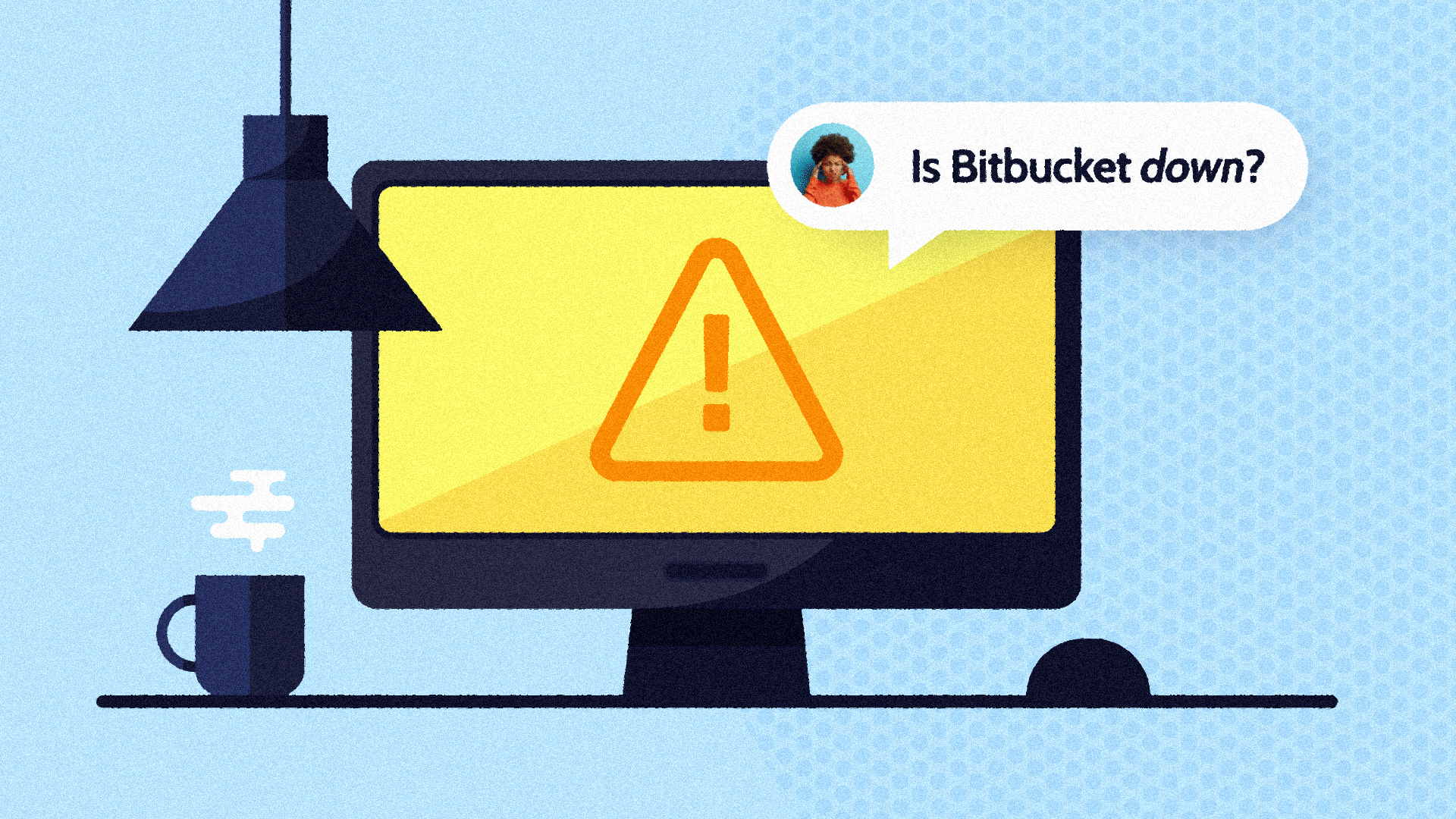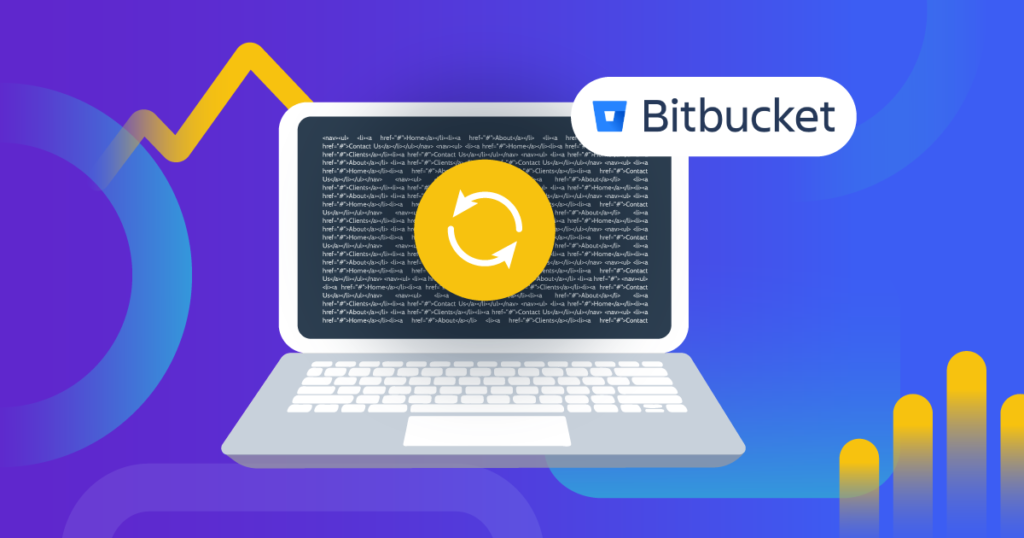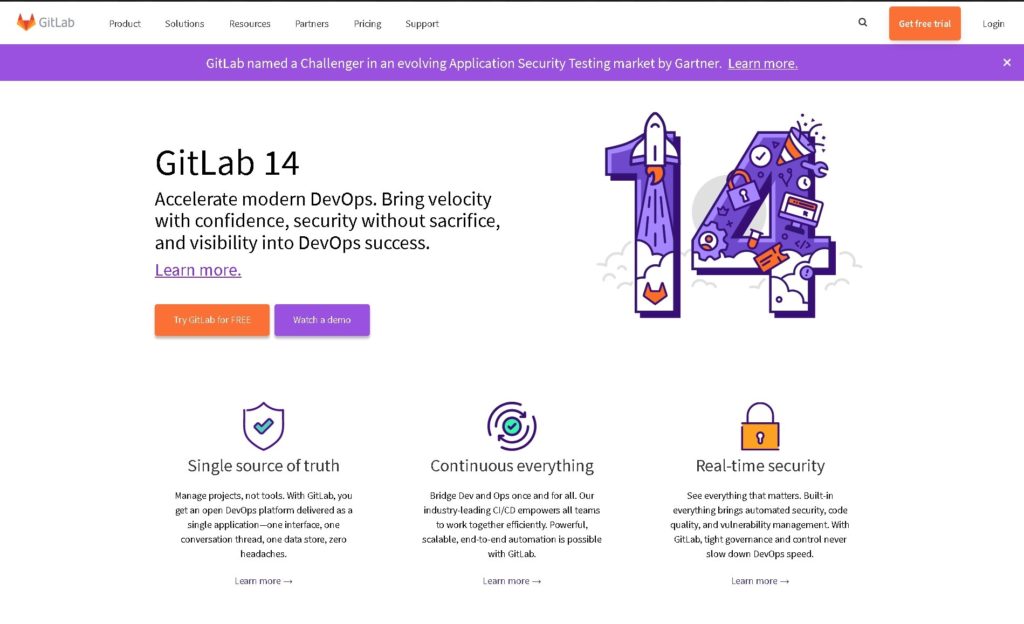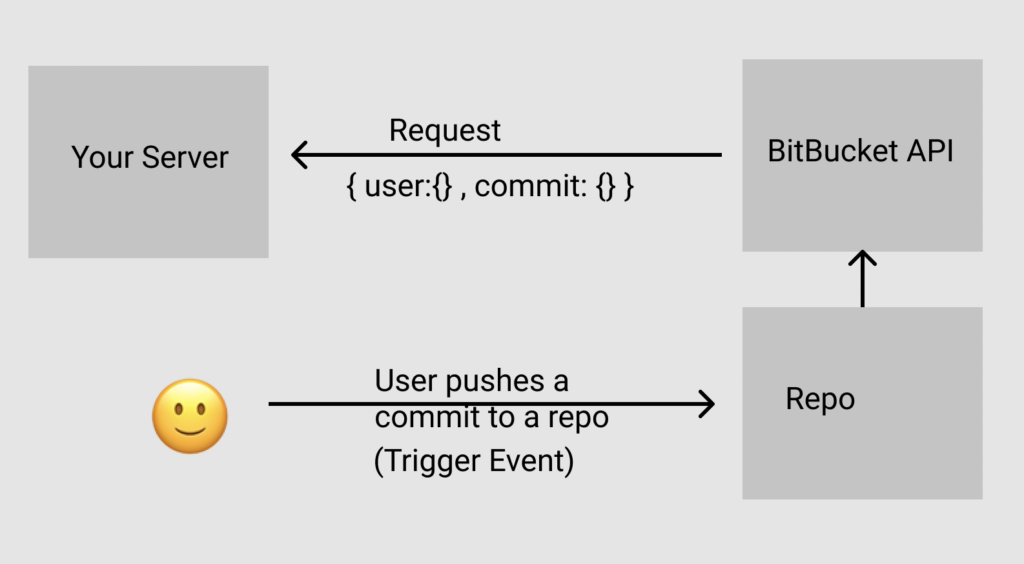Those of us who use specific apps every day to get our jobs done are all too familiar with that sinking feeling when we suddenly can’t log in or an app’s performance is inexplicably sluggish.
When that happens, our first thought is, “Is it just me?”
If your Bitbucket isn’t working today, it could be a platform glitch beyond your control. Alternatively, the cause might be user error or a local system- or infrastructure-related problem.
The good news is that with a reliable backup solution, you can recover from these scenarios and immediately get back to work.
This post will review the most common issues with Bitbucket, why they happen, and ways you can overcome them.
What is Bitbucket, and why use it?
Bitbucket is a Git-based source code repository hosting service. With Bitbucket, it’s easy for developers to store and manage their code and track and control its changes.
The tool integrates seamlessly with Jira and Trello, which allows entire software teams to work collaboratively to execute projects. Thanks to its user-friendly interface, even novice coders can take advantage of Git. It’s easy to search for repositories, pull requests, branches, usernames, and more.
One of the most popular features of Bitbucket is its built-in issue tracker that allows you to check the status of bugs, new feature requests, and assigned tasks.
People often ask what the difference is between Bitbucket and GitHub. Essentially, GitHub focuses on public code, while Bitbucket is designed with private projects in mind. GitHub is favored by the open-source community, while Bitbucket’s primary users are enterprises.
Bitbucket is owned by Atlassian and is available in both commercial plans and free accounts. You can select from three Bitbucket deployment options:
Bitbucket Cloud
Bitbucket Cloud is hosted on Atlassian’s servers and accessible through a URL. This option features a built-in continuous integration tool called Pipelines that makes it easy to build, test, and deploy your code directly within the system.
Bitbucket Server
If you prefer an on-premise solution, Bitbucket Server is for you. This option doesn’t include the built-in testing and deployment feature. However, it interoperates effectively with Bamboo, Atlassian’s continuous integration and delivery tool that supports automated builds.
Bitbucket Data Center
This is Atlassian’s enterprise Bitbucket offering. It presents as a single instance of Bitbucket Server to your users but is hosted on a cluster of servers in your environment.
Bitbucket isn’t working – what now?
If you can’t access your Bitbucket account or it’s underperforming, there are two possible scenarios – the Atlassian platform could be temporarily unavailable, or there’s a problem with your internal systems or user behavior.
When Bitbucket is down due to an Atlassian outage
Let’s deal with the first scenario – an Atlassian outage. The Atlassian platform is one of the most reliable. The company prides itself on its uptime and continually invests in ensuring service continuity. For example, its Tenant Context Service (TCS) is designed to provide a highly available, read-optimized view of its catalog of “tenant metadata.” This catalog contains metadata required to locate and serve a request to any of Atlassian’s cloud products (like product shard locations, backing resource locations, etc.). Over the last three years, Atlassian has worked on several improvements to this technology, as explained in this recent post:
“The TCS team has worked on many improvements to our client sidecar (a sidecar is a co-process that runs alongside a host service), and we’ve evolved it into a high-performing and resilient node-local cache. Our TCS sidecars can now serve up to 32 billion requests per day, run concurrently across up to 10,800 compute nodes, and have cache hit ratios that generally exceed 99.5%.”
That being said, Atlassian isn’t immune to glitches that, in rare cases, can cause outages. For example, in the Spring of 2022, a two-week-long cloud outage affected almost 800 customers. While that’s not a huge number (less than half a percent of the company’s total customers), you probably weren’t too happy if you were one of them.
A company spokesperson explained that Atlassian’s engineers had run a script to delete legacy data as part of scheduled maintenance for unidentified cloud products. Unfortunately, the script went beyond its remit and deleted data it shouldn’t have:
“This data was from a deprecated service that had been moved into the core datastore of our products. Instead of deleting the legacy data, the script erroneously deleted sites, and all associated products for those sites, including connected products, users, and third-party applications.”
Next, let’s explore what you can do if you’re experiencing issues with Bitbucket and want to verify whether the problem is with you or the Atlassian platform.
How to confirm that it’s not just you when Bitbucket is down
If you’re puzzled about why your Bitbucket isn’t working, you don’t have to wonder for long. If you’re struggling to access your Bitbucket account, go to the Atlassian status page as a first step.
You can also check out Downdetector, which provides a graphical representation of Bitbucket problem reports submitted in the past 24 hours compared to the typical volume of reports by time of day. Downdectector also gives you the option to provide details of any Bitbucket issues you’re having and provide helpful feedback on the service.
IsDown is another resource that allows you to check the stats and details of Bitbucket availability. IsDown provides details of any Bitbucket outages occurring in the last 7/30 days, as well as the number of days since the last outage.
If Bitbucket isn’t available and you have Rewind Backups for Bitbucket, the only way to access your data is by cloning from Rewind servers. We offer a disaster recovery service for enterprise Bitbucket customers. By default, Rewind creates backups of all Bitbucket repositories that it has access to. If you want to back up only selected repositories, you can limit access to those repositories during installation or at a later stage in the app settings.
Not an outage? Other reasons you may be experiencing Bitbucket downtime
Downtime can also be caused by:
Accidents and mistakes, such as deleting or altering files: Employee negligence/human error is responsible for most data loss incidents and breaches in the SaaS world.
Issues with CSV files: Errors like corrupted files, column-naming discrepancies, or code mistakes can creep in when you do bulk uploads from a CSV file.
Software conflicts from buggy, third-party apps or poorly written scripts: If valid credentials (including programmatic and scripting errors) authenticate a command to change or delete data, your data could vanish forever.
Malicious attacks from outside sources or even internal employees: Yes, it happens more often than you think!
Server or system performance issues: A host of potential internal infrastructure issues could affect your system’s response times and cause Bitbucket to underperform. Visit Atlassian’s performance troubleshooting page or seek out help on Atlassian’s dedicated Bitbucket community.
Data loss: understanding your responsibility vs. Atlassian’s
If you read the fine print in Atlassian’s terms of service, they undertake to do their best to ensure their applications, including Bitbucket, are up and running at all times and that your data is secure. But when an unplanned outage occurs or, worse still, your data is lost or corrupted by a user or one of your tools/apps, you’re solely responsible.
Many people don’t know that according to the Shared Responsibility Model, SaaS vendors are only responsible for ensuring the security of their cloud environments. As a customer, the onus is on you to secure your data in those clouds.
Consider the following clause in Atlassian’s Terms of Service:
We are not responsible for any access to or use of Your Data by third-party providers or their products or services or for the security or privacy practices of any third-party provider or its products or services. You are solely responsible for your decision to permit any third-party provider or third-party product or service to use Your Data.
The wisdom of investing in a “set and forget” backup solution
An independent third-party backup solution is a vital element of a proactive data protection strategy and a responsible business continuity plan in the event of the worst-case scenario.
The best cloud backup services are automatic or “set and forget,” meaning you can simply set up the service once and forget it – there’s no need for any input going forward. You don’t need to be an online data backup expert to set up an automatic service. You don’t need a team of in-house IT pros to change hard drives and store physical copies of your data.
Cloud backup services are also more affordable than physical data backup, the cost of which could vary from month to month. With an automatic data backup solution, you’ll usually pay per GB of data used on a rolling monthly basis.
Final thoughts
Tools like Rewind Backups for Bitbucket give you automated daily backups with advanced data recovery capabilities. You benefit from one-click account recovery and granular, item-level restores.
With Rewind, you can enjoy all the benefits of Bitbucket without needing to worry about human errors; disasters and outages; hardware, system, and application failures or incompatibility issues; or any other type of data loss/unavailability scenario.



